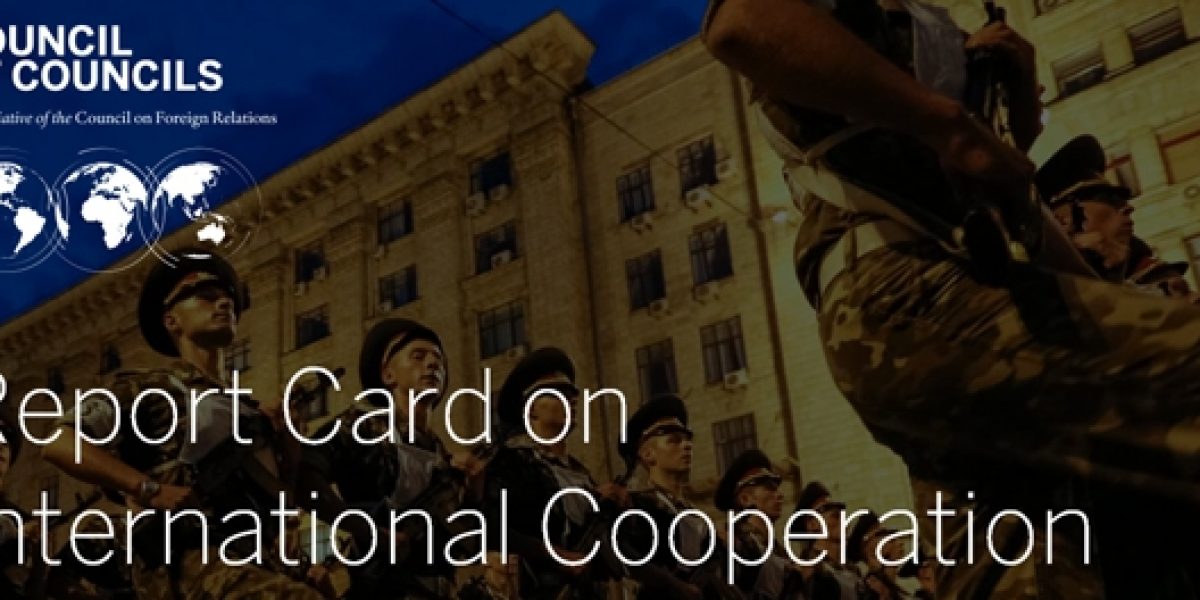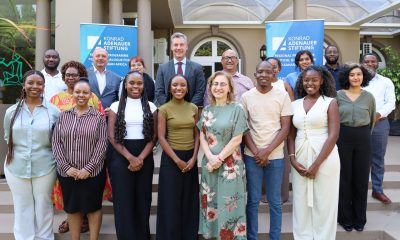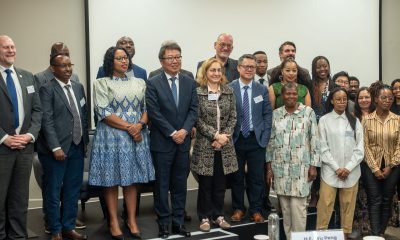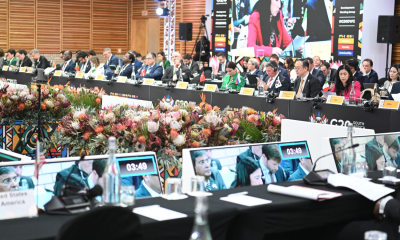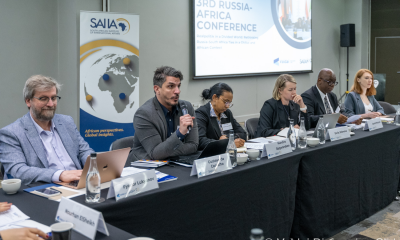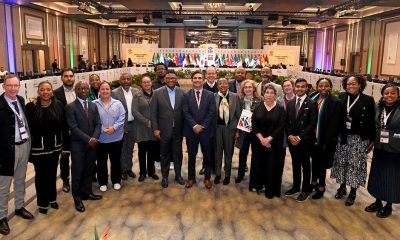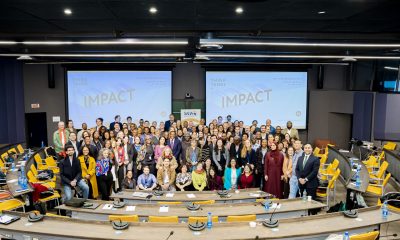A Council of Councils Report Card on International Co-operation has found that multi-lateral action on most critical transnational threats is sorely lacking.
SAIIA is a member of the Council of Councils, an initiative comprising twenty-six major international policy institutes which aims to facilitate dialogue on global governance and multilateral co-operation. SAIIA participated in the Report Card survey, which asked heads of member think tanks to evaluate international efforts on ten of the most important issues in 2014:
- the global economy
- nuclear non-proliferation
- climate change
- development
- global health
- trade
- cyber governance
- transnational terrorism
- both interstate and intrastate conflict.
Global co-operation on eight of the ten issues received mediocre grades: C- or C+.
Explore the interactive Council of Councils Report Card on International Co-operation. Click on the video below to watch heads of leading think tanks, including SAIIA’s Chief Executive Elizabeth Sidiropoulos, discussing the results.
{youtube}o4L92DKMPjg|500|350{/youtube}
‘Every era is characterised by a dominant threat to order, and for this era it comes from challenges that are global by nature,’ said Council on Foreign Relations (CFR) President Richard N. Haass. ‘This report card identifies the areas in which co-operation is most needed and can produce the greatest results.’
When asked to prioritise these issues for 2015, respondents agreed that preventing and responding to interstate violence ranked number one. ‘The most urgent priority is to defuse the risk of great power conflict,’ said Ferdinando Nelli Feroci, head of Italy’s Institute of International Affairs. The majority of participants cited Russia’s annexation of Crimea and ongoing tensions in Ukraine as a primary concern. ‘The year 2014 witnessed a serious conflict in Europe between two states, and tensions threatened to boil over in similar situations throughout the world. The global response to these crises has been unsuccessful, in some situations exacerbating the problem,’ explained John Chipman of the London-based International Institute for Strategic Studies.
SAIIA’s Elizabeth Sidiropoulos explained that her selection was based on more long-term challenges, but that ‘we nevertheless have to focus on in the immediate term because these often act as catalysts for the more urgent problems that the world faces, such as terrorism, radicalisation, and intrastate conflict’.
She said the difficult opportunity in 2015, given the ongoing tensions between Russia and the West, will be the five-yearly review conference of the Treaty on the Non-proliferation of Nuclear Weapons (NPT). At the other end of the rankings, preventing and responding to interstate and intrastate violent conflict will continue to be marred by short-term political calculations and the Iraq or Libya syndrome—of having to deal with the aftermath of an intervention that may in fact have caused more harm than good. There is likely to be a gradual increase in support to those fighting ISIS in the Middle East, but that in and of itself will not address the longstanding underlying drivers of conflict, she said.
‘Terrorism and radicalisation often feed off underlying domestic socioeconomic issues. Nevertheless, developments in Africa over the last couple of years indicate that there needs to be a parallel track approach to addressing them — development and good governance progress on the one hand, and shorter-term actions aimed at reducing the immediate threat they pose. In Africa, this challenge is particularly acute in West Africa across the Sahel and in East Africa, with significant potential impact on societies,’ Ms Sidiropoulos said.
International efforts to prevent and respond to intrastate violence received the lowest grade, a D, despite being ranked as the second highest priority. ‘The international community and the UN have failed in our responsibility to protect citizens from intrastate violent conflict. The worst example is, of course, Syria,’ argued Michael Fullilove, executive director of Australia’s Lowy Institute for International Policy.
The highest grade, a B-, went to nuclear non-proliferation efforts, reflecting progress in containing Iran’s nuclear program during 2014. ‘The unprecedented sanctions regime against Iran demonstrated that resolved, unified international action on the economic front can bring about significant diplomatic achievements,’ said Amos Yadlin, director of the Tel Aviv-based Institute for National Security Studies. ‘2014 gave a good demonstration that nuclear proliferation can be effectively prevented,’ he added.
Although participants gave a dismal evaluation of last year’s performance overall, they noted that expanding trade, managing global health, and mitigating climate change constitute the top three opportunities for breakthrough this year. ‘The good news is that despite the continuing global economic crisis in many parts of the world, protectionism has not spiked,’ said Rohinton Medhora, of Canada’s Center for International Governance Innovation. Specifically, the Council of Councils considered the Trans-Pacific Partnership with Asia and the Transatlantic Trade and Investment Partnership between the EU and the United States as the agreements most likely to progress in 2015.
‘Globalisation has presented new threats—and new opportunities—which cannot be managed by any country alone’ said Stewart M. Patrick, director of CFR’s International Institutions and Global Governance Program, which produced the report card. ‘They require international co-operation, but it can be hard to prioritise among important issues and grasp how the world is doing at addressing them. This report card is a unique initiative that helps policymakers around the world better understand trends in international co-operation and prioritise among them,’ he explained.
The Council of Councils is a CFR initiative connecting leading foreign policy institutes from around the world in a common conversation on issues of global governance and multilateral co-operation. Read more here.

